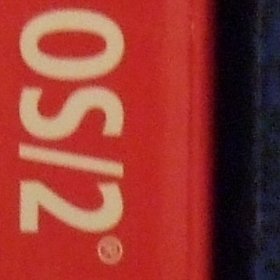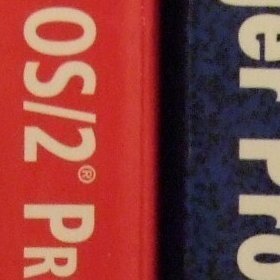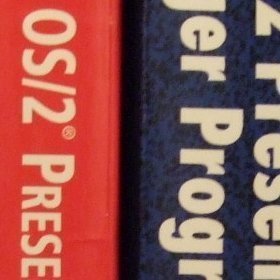Noise-Density Illustrated
News
2007.10.28
In our last post, we discussed the difference between noise and noise-density. Basically, noise-density is noise relative to resolution. Output quality, on a particular medium, is more related to noise-density than to noise because most mediums have an optimal resolution. For example, a typical computer display running at 1600x1200, needs about 2 megapixels. More pixels are simply wasted. The quality of an image seen at 1600x1200 is therefore related to the amount of noise that appears at 2 megapixels.
To illustrate the difference, I shot the same scene at 3, 6 and 12 megapixels using the Fuji Finepix F50SE. The experiment was repeated for various ISO sensitivities. The difference is striking: As the resolution decreases, noise decreases in proportion. What is a very noisy ISO 1600 image at 12 megapixels, becomes much less noisy at 3 megapixels. At ISO 400, the crop is noise at 12 megapixels but rather clean at 3 megapixels.
| ISO 400 | |
 |
 |
 |
All these images come from the same camera yet they show very different noise characteristics. The only difference is resolution. The top left image was shot at 12 megapixels, the top-right at 6 megapixels and the left image at 3 megapixels. For an ultra-compact digital camera with a tiny sensor, the performance at 6 megapixels is excellent. At 12 megapixels, it does not seem so great, although it would take a relatively large print to take advantage of all those pixels. When using a medium that requires a resolution lower than that of the image, pixels are down-sampled to the optimal resolution anyways. |
| ISO 1600 | |
 |
 |
 |
Here is the same setup except at ISO 1600 rather than 400. While the 12 megapixels crop shows strong image noise, the 6 megapixels crop is good for an ultra-compact. Indeed, other than previous F-series Finepix cameras, no ultra-compact digital camera can produce 6 megapixels images that are this clean. At 3 megapixels, which is sufficient for 8"x6" prints, only a little noise remains visible. Note that these tests were made with the camera set to the desired resolution but nothing prevents users from taking their images at full-resolution in the camera and reducing the resolution later. Actually, this method is generally preferable because you can effectively reduce the resolution in software but not vice-versa. There are advantages though to reducing the resolution of images in-camera: reduced memory requirement and increased speed of operation. |
- Digital Camera
Please Support Neocamera
All information on Neocamera is provided free of charge yet running this website is a huge endeavor. Purchases made via affiliate links found throughout the site help keep it running and up-to-date. There is no additional cost to you, so please consider buying via these links to our affilates:
If you found any information on this site valuable and did not purchase via our affiliate links, please considering donating via PayPal:
Any amount will be greatly appreaciated. Thank you for your support!
New Cameras & Lenses

Canon RF-S 14-30mm F/4-6.3 IS STM PZ
Stabilization
Canon RF Mount Zoom
2025-03-26
Canon RF 20mm F/1.4L VCM
Weatherproof
Canon RF Mount Prime Lens
2025-03-26
Canon EOS R50 V
24 Megapixels Mirrorless
Canon RF Lens Mount
2025-03-26
Venus Optics Laowa 14mm T/2.6 Zero-D VV Cine
Sony E Mount Prime Lens
2025-03-25
Venus Optics Laowa 14mm T/2.6 Zero-D VV Cine
Nikon Z Mount Prime Lens
2025-03-25
Venus Optics Laowa 14mm T/2.6 Zero-D VV Cine
Leica L Mount Prime Lens
2025-03-25
Updates
2025.01.18

Fujifilm GFX 2025 Lens Roundup
Lens Review roundup of Fujifilm GFX Medium-Format lenses. Quality, performance and handling of the GF20-35mm F/4R WR, GF30mm F/3.5 Tilt-Shift and the GF55mm F/1.7.
2024.11.18

Best 2024 Photography Gifts for Every Budget
Great gifts for photographers and photo enthusiasts selected for every budget among the best products of 2024.
2024.08.07

Eye Protection Tips for Professional Photographers
The four main considerations for professional photographers regarding eyewear.
2024.07.14

Fujifilm X100VI Review
Flagship fixed-lens compact digital camera with a 40 MP sensor and Image-Stabilization, a first for the series. Retro design featuring dual control-dials, plus direct ISO, Shutter-Speed and EC dials. Its hybrid viewfinder can switch between EVF and OVF mode.
2024.05.09

Fujifilm GFX100 II Review
Flagship 102 Megapixels Medium-Format Mirrorless Digital Camera with 8-Stop 5-Axis IBIS, 8 FPS Drive, 8K Video and 400 MP Super-Resolution capture in a weatherproof and freezeproof body with dual control-dials and dual memory-card slots.
2024.04.03

Fujifilm X-T5 Review
Newest Fujifilm flagship boasting a 40 MP APS-C sensor, 5-axis IBIS with 7-stop efficiency, 15 FPS continuous drive, 6.2K Video capture, dual control-dials and dual SDXC UHS-II slots in a sturdy weatherproof and freezeproof body.
2023.11.20

Best Digital Cameras of 2023
Find out which are the Best Digital Cameras of 2023. All the new Mirrorless Digital Cameras from entry-level to high-end professional.
2023.07.10

Fujifilm X-H2 Review
40 Megapixels APS-C Hybrid Mirrorless Digital Camera with 7-stop IBIS. Fastest shutter ever and 8K video capture. Large builtin EVF with 0.8X magnification and 5.8 MP, plus an Eye-Start Sensor. Packed with features and large number of controls in a weatherproof and freezeproof body.
2023.05.07

Sony FE 20-70mm F/4G Review
Review of the unique Sony FE 20-70mm F/4G lens. The optical zoom of this lens spans ultra-wide-angle and medium focal-length coverage, making it one of the most versatile Full-Frame lenses on the market.
2023.01.15

Huion Inspiroy Dial 2 Review
Review of the Huion Inspiroy Dial 2 tablet, a medium sized drawing surface with dual dials and customizable buttons. Connects via USB-C or Bluetooth 5.0 with Windows, Linux and Android support.
2022.12.08

How to Pack for a Photo Trip
Find out how to pack for a travel photography trip, carry your gear safely while meeting airline regulations.
2022.11.13

Best Digital Cameras of 2022
The best digital cameras of 2022. A short list of the most outstanding models in their respective categories. Choose one for yourself or as a gift.








